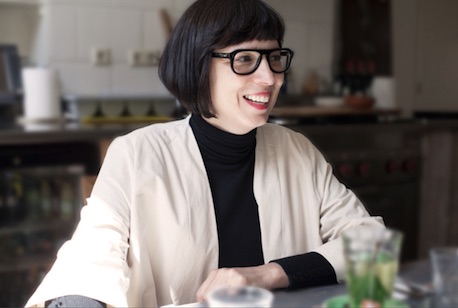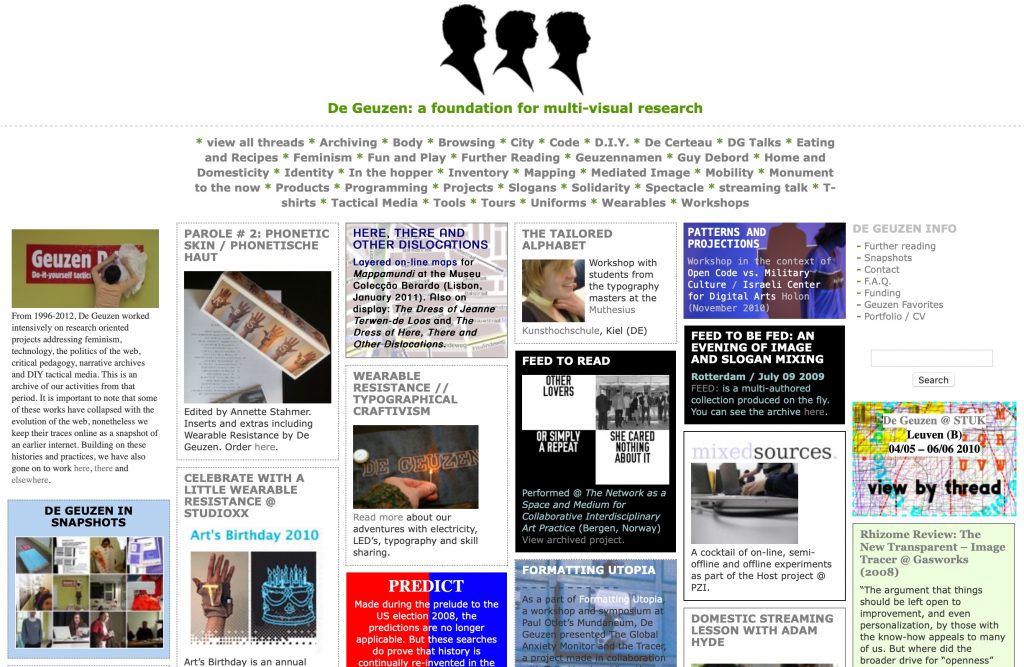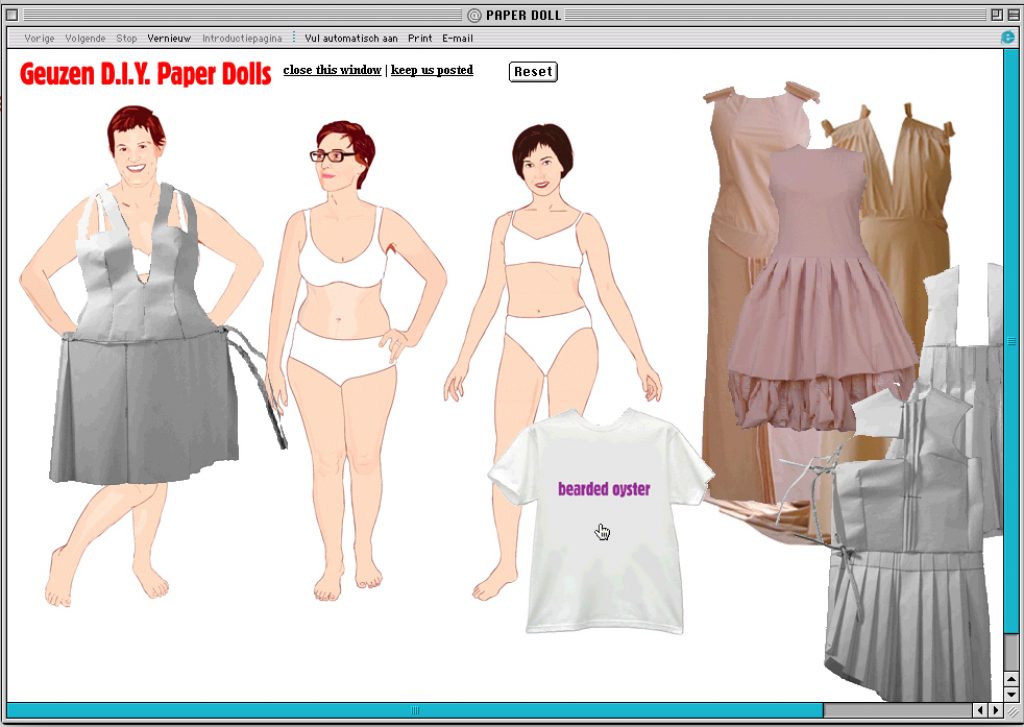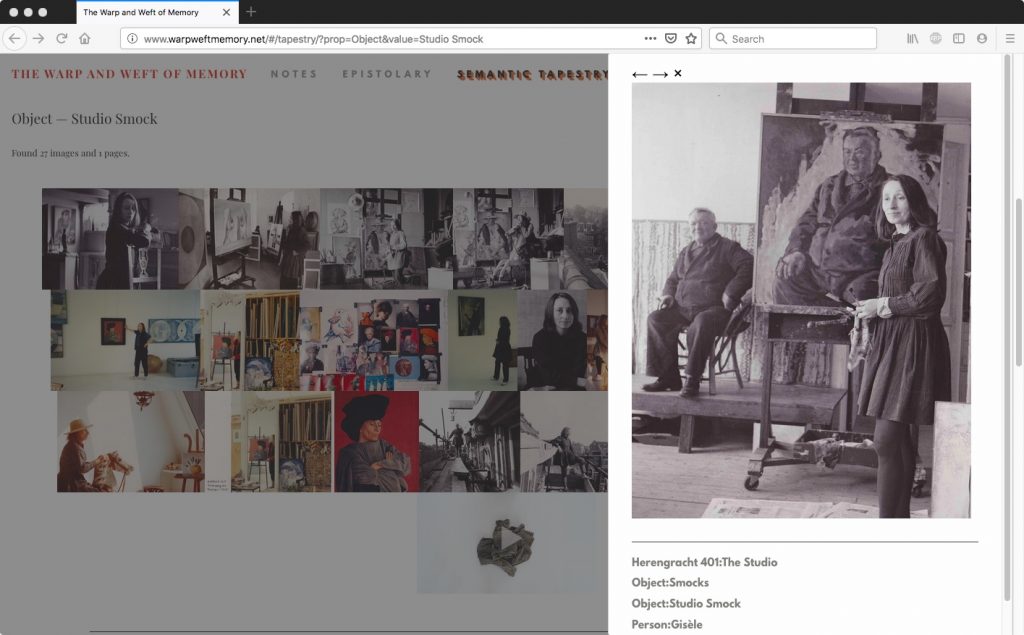
I’m a jack of all trades, master of nothing and mistress of many. Transdisciplinary practice, as elastically as it is defined in my lexicon, is integral to my education, artwork, collaborations and teaching.
My bachelor’s degree is from a small Catholic liberal arts university, where I did more classical studies. After receiving my MFA from the University of Arizona, I moved to the Netherlands to attend the Rijksakademie, which was followed by two years as a researcher in the Theory Department at the Jan van Eyck Academie. With a keen interest in online writing and digital narratives, I also have a second Master’s degree in Creative Writing and New Media from De Montfort University.
From 1996 to 2012, I collaborated with Riek Sijbring and Femke Snelting under the name De Geuzen: a foundation for multi-visual research. At the time, multi-visual research was a speculative monicker. In the Netherlands, there were no visual art PhDs and the possibility of art being research was absurd to many. Operating otherwise, we became an experimental research unit exploring issues near and dear to us.

Our time together at the Jan van Eyck Academie, a place where art, design and theory commingled, was pivotal. Our practice was informed by a mix of feminist and queer practices (Valie Export, the Guerrilla Girls, Donna Haraway, General Idea, Sandy Stone, Heresies magazine, Judith Butler and many others). We were also inspired by the emergence of the internet, its popular vernacular and online DIY sharing cultures which circumvented traditional exhibition systems.

Our practice took on a variety of forms combining art, design, theoretical enquiry and dialogue with other disciplines. We created shared archives, hosted numerous lectures, created textile interfaces and published online. Next to projects in our own space and on our site, our works have been featured in exhibitions at De Appel, Manifesta, the Bienal de Valencia, Rhizome, Mute, and Thames & Hudson’s Internet Art etc.
Building on my collaborative practice, I have continued to combine various visual forms of research to explore female identity, narratives of the archive and spaces of co-learning. With the support of the Creative Industry Funds and a Grant for Established Artists from the Mondriaan Foundation, I conducted three-years of research at Herengracht 401. Entitled, The Warp and Weft of Memory, the project had multiple manifestations: public lectures, an exhibition, a print publication and an online narrative archive. Exploring the closet of Dutch artist, Gisèle d’Ailly van Waterschoot van der Gracht, I looked at how its contents reflected her life and various related histories.

With regards to teaching, I have never drawn strict lines between my artistic practice and education. Research and learning happen in both registers, but perhaps with different restraints and potentialities. I have worked at the Willem de Kooning Academy and Piet Zwart Institute for several years.
From 2011-2015, I was the Director of the Piet Zwart Institute where I worked on bringing departments together and promoted interdisciplinary approaches. Currently, I am a Senior Research Lecturer working in the bachelors and masters. For four years, I have been co-teaching with Professor Frans-Willem Korsten, specifically, the Critically Committed Pedagogies course in the Masters Education in Arts at the Piet Zwart Institute. This has proved challenging but also miraculously inspiring to have our respective knowledge rub off on each other.
Lastly, I am engaged in RASL Research and this Transdisciplinary Group. My hope for our transdisciplinary research is that we find ways of working together and can establish a lingua franca without levelling the richness and frictions of approaches, vocabularies (visual, verbal, aural, performative or otherwise) which we bring with us. I believe our strength resides in our plurality and differences.